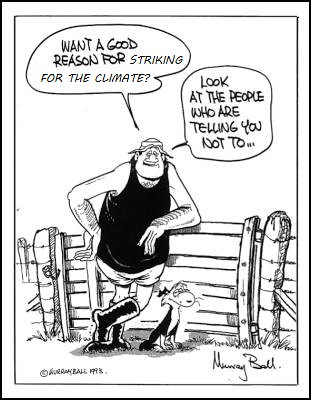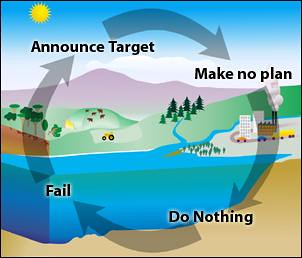The Local Government Act 2002 Amendment Bill (No 2) had part of its committee stage yesterday. its a generally tedious bill about the nitty-gritty of local government reorganisation. But it includes a clause making the Local Government Commission subject to the Ombudsmen Act, and hence the OIA. Great! Except of course there's a nasty twist: while being generally subject to the OIA, the Commission will have its own little secrecy clause, temporarily exempting from the OIA (until the investigation, review etc is finalised) assorted classes of information:
(a) the consideration of any matter under section 31:
(aa) a reorganisation investigation under Part 1 of Schedule 3:
(ab) the review of a local authority-led reorganisation application under clause 22C of Schedule 3:
(b) the resolution of a dispute under section 31H by the Commission under this Act or another enactment:
(c) the determination of an appeal or objection under section 19R of the Local Electoral Act 2001.
Naturally there's no assessment of this in the bill's
Regulatory Impact Statement. According to the RIS, the Ombudsman was not consulted, and they did not submit on the bill (probably because they didn't notice it at the time). However, according to the
summary of submissions [p 36], several groups submitted against this clause and in defence of transparency. Their submissions were ignored.
But looking at it from first principles, there seems to be little reason for secrecy. Take ground (a), which refers to the
function of the Local Government Commission to:
consider, report on, and make recommendations to the Minister and any relevant local authority on matters relating to a local authority or local government considered appropriate by the Commission [or] referred to the Commission by the Minister
Why would this need to be inherently secret? More importantly, why would it need so much secrecy as to exempt it entirely from the definition of "official information" - a legal trick not even granted to national security information held by the SIS or GCSB? Insofar as such a report is "actively under consideration", advice (but not facts) relating to such an investigation could be legitimately withheld under
s9(2)(f)(iv) (unless outweighed by the public interest, of course). And similar questions arise naturally from the clauses relating to local government reorganisation.
What about dispute resolution? Again, insofar as it relates to a private dispute between local government officials, s9(2)(a) provides all the protection that is needed. Alternatively, if the Commission is viewed as a mediator similar to the Human Rights Commission,
s87 Human Rights Act provides strong protection for mediation-related information, but does not exempt it from the definition of "official information", and allows it to be released with consent.
As for exempting appeals over
local body electoral boundaries, its worth noting that there is no such protection for the Representation Commission when
deciding appeals against general electoral boundaries. There's simply no reason whatsoever for such secrecy.
The bill was drafted by the previous government, so this one isn't Labour's fault. But it highlights the disturbing trend, which Labour has allowed to continue, of agencies being granted any request for secrecy, and being given their own mini-Official Secrets Acts to exempt information they want to hide from the public sphere. And sadly, the legislative process includes no safeguards against this whatsoever. Again, the government needs to think about transparency and open government when designing legislation, just as they do about human rights, the Treaty, and gender equality. And it is simply shameful that they do not.
It is not too late for the government - or the opposition - to fix this, but putting up an SOP to strike s19 from the bill. It'll be interesting to see whether anyone does, or whether our political elite is happy with this growing trend of secrecy.










